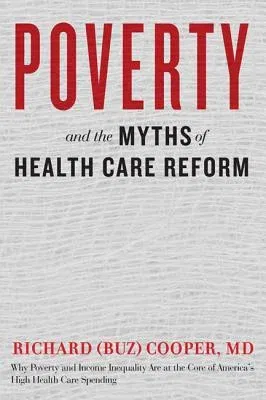Proof that high health care spending is linked directly to poverty.
In Poverty and the Myths of Health Care Reform, Dr. Richard (Buz)
Cooper argues that US poverty and high health care spending are
inextricably entwined. Our nation's health care system bears a financial
burden that is greater than in any other developed country in large part
because impoverished patients use more health care, driving up costs
across the board.
Drawing on decades of research, Dr. Cooper illuminates the geographic
patterns of poverty, wealth, and health care utilization that exist
across neighborhoods, regions, and states--and among countries. He
chronicles the historical threads that have led to such differences,
examines the approaches that have been taken to combat poverty
throughout US history, and analyzes the impact that structural changes
now envisioned for clinical practice are likely to have. His research
reveals that ignoring the impact of low income on health care
utilization while blaming rising costs on waste, inefficiency, and
unnecessary care has led policy makers to reshape clinical practice in
ways that impede providers who care for the poor.
The first book to address the fundamental nexus that binds poverty and
income inequality to soaring health care utilization and spending,
Poverty and the Myths of Health Care Reform is a must-read for medical
professionals, public health scholars, politicians, and anyone concerned
with the heavy burden of inequality on the health of Americans.

